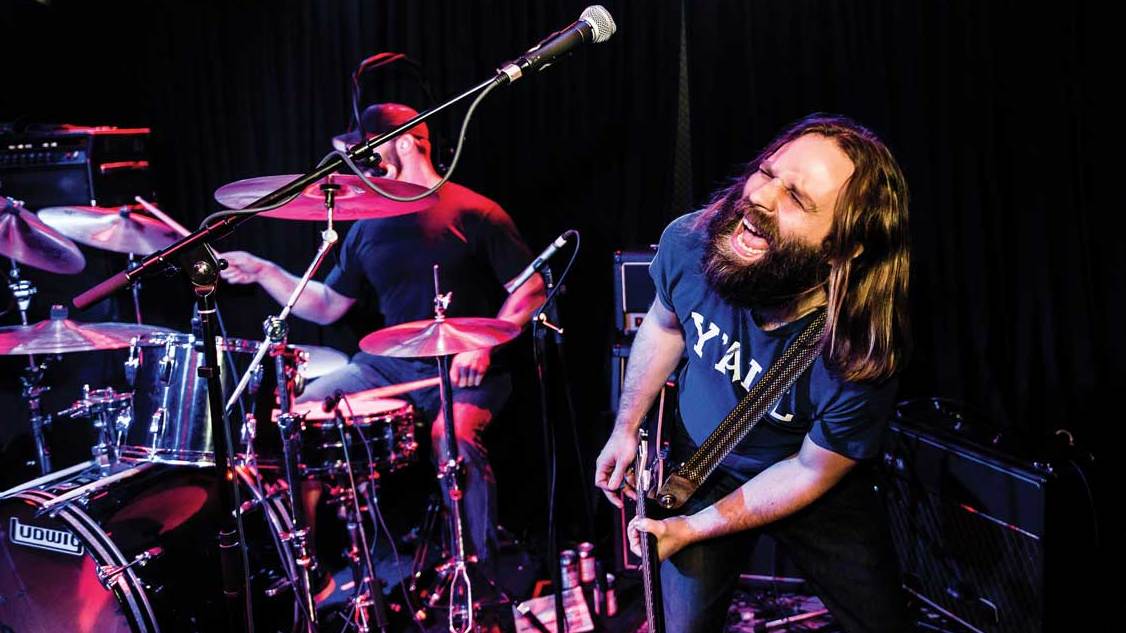This is the first ever London show by Dream The Electric Sleep, the trio from Lexington, Kentucky widely hailed as one of the finest current purveyors of all things progressive, alternative and post-rock. You can add to that list of generic pigeonholes swervedriving desert rock, psych, anthemic shoegaze, melodic metal and Byrdsian grunge, because Dream The Electric Sleep are nothing if not hard to categorise. They’re almost a blank canvas for listeners to project their record collections on. Really, though, the question, as singer/guitarist Matt Page posits on Let The Light Flood In, is simply, “Does it move you?” To which the answer is a resounding affirmative, even if the people doing the affirming number in their dozens instead of thousands – this widescreen rock is built for stadia, not clubs.
Perhaps acknowledging their square peg/round hole quotient, DTES’ intro music is The Beach Boys’ I Just Wasn’t Made For These Times, after which our three hirsute heroes – Page, drummer/vocalist Joey Waters and bassist/singer Chris Tackett – amble on to Heretics, the title track of their 2014 second album. It’s powerful, panoramic stuff, the drums taking centre stage, metaphorically as well as literally, Waters pounding his kit with casual force. Let The Light Flood In – from 2016’s third album, Beneath The Dark Wide Sky – has all the appeal of name-your-favourite-past-exponents-of-self-consciously-Big-Music, from peak-period U2 to Muse.
It’s prog, not as in tripartite song structures or twitchy tempos, but as in progressive, venturing far and wide, across giant spaces, with a far-sighted vision. The drums are savage, the bass a subterranean reverberation, the guitar a keening peal, and Page doesn’t so much sing as wail plaintively, Waters harmonising as the crowd (term used generously) head-nod with increasing vigour.
Elizabeth, from Heretics, elicits cheers of recognition – the audience may be small, but it’s committed – as the drums, bass and guitar give each other space to roam. We Who Blackout The Sun is a feast of propulsive pyrotechnics and psychedelic in the sense that drugs might enhance its mesmeric, immersive potential, with a guitar sound like a wind storm over the horizon. Headlights, meanwhile, has some of the tempo twitchiness of prog, while Sundown – from 2011’s debut album Lost And Gone Forever – suggests DTES really knew what they were doing from the start, even if their latest music represents a considerable advance.
Flight and Black Wind have a menacing power, This Is This has a metronomic groove that virtually functions as a tribute to Jaki Liebezeit (RIP), while an encore of The Joneses hears the band take flight, achieving a Byrds-like ascent via the song’s soaring harmonies and modal guitar melodies. One might venture that they weremade exactly for these times.

